News
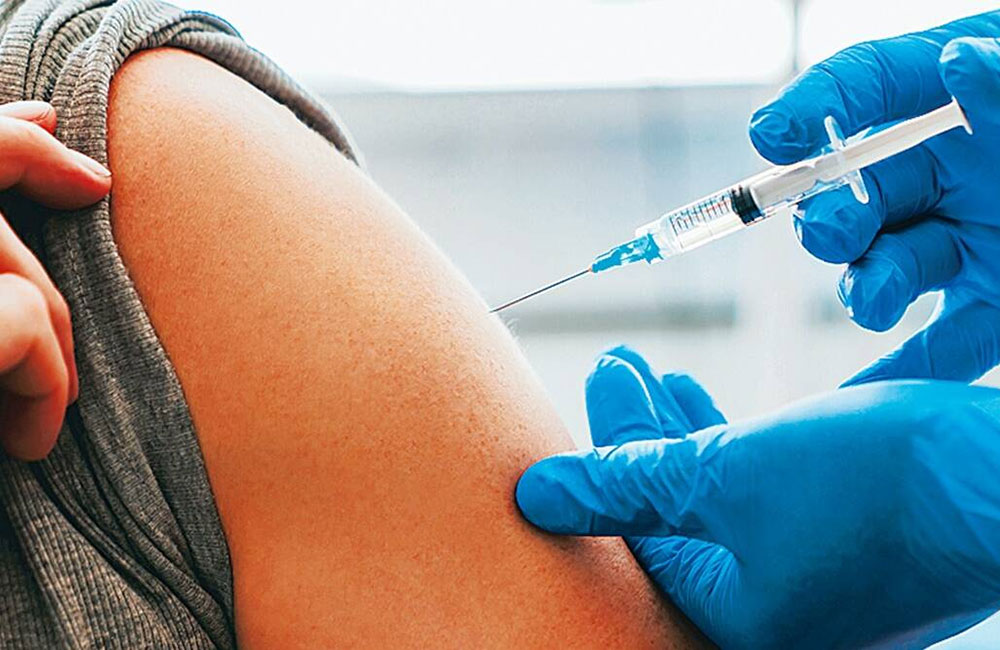
Government decides to give Pfizer vaccine to children
The decision to give the Pfizer vaccine to children between the ages of 15 and 19 was taken after lengthy discussions with medical experts and other countries around the world on the idea of vaccinating children of different ages.
Channa Jayasumana, Minister of State for Drug Production, Supply and Regulation stated that the decision was taken at a meeting of the covid Suppression Task Force chaired by the President today (17).
Accordingly, it has been decided to give this vaccine to children between the ages of 15 and 19 suffering from cognitive and other disorders as the first phase.
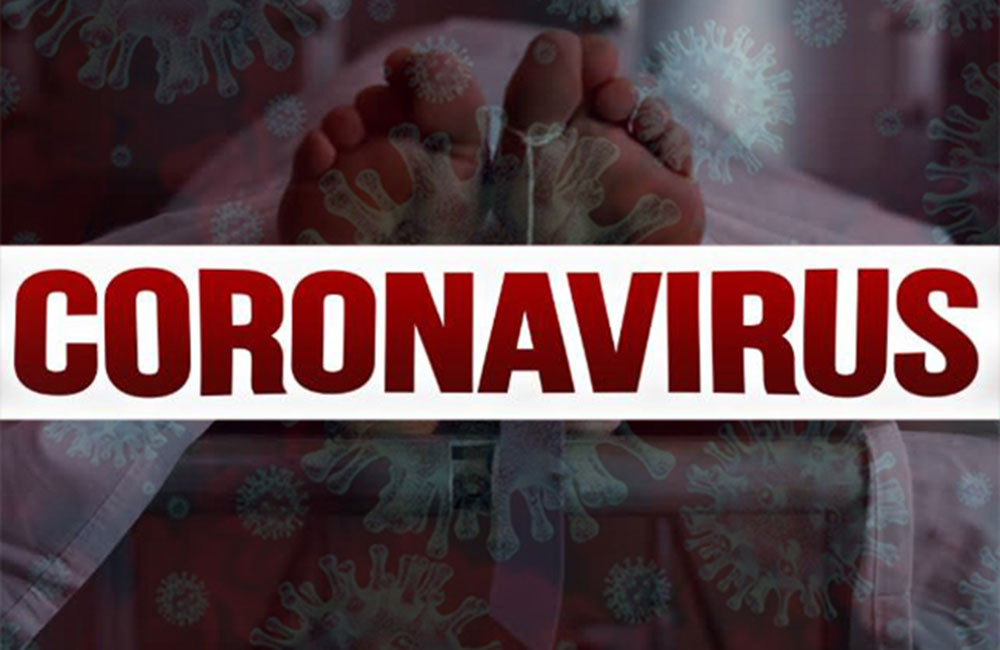
135 more COVID-19 deaths reported
135 COVID-19 deaths were confirmed for Sunday (12), said the Director-General of Health Services on Monday (13). The total number of fatalities in Sri Lanka increased to 11,431.
According to the Government Information Department, 64 females and 71 males are among the deceased.
A total of 109 people who are above 60 years of age are among the deceased while 26 of them are between 30 and 59 years of age.
No deaths have been reported below 30 years of age.


121 COVID deaths confirmed for Thursday (16)
121 COVID-19 deaths were confirmed for Thursday (16), said the Director-General of Health Services on Friday (16). The total number of fatalities in Sri Lanka increased to 11,938.
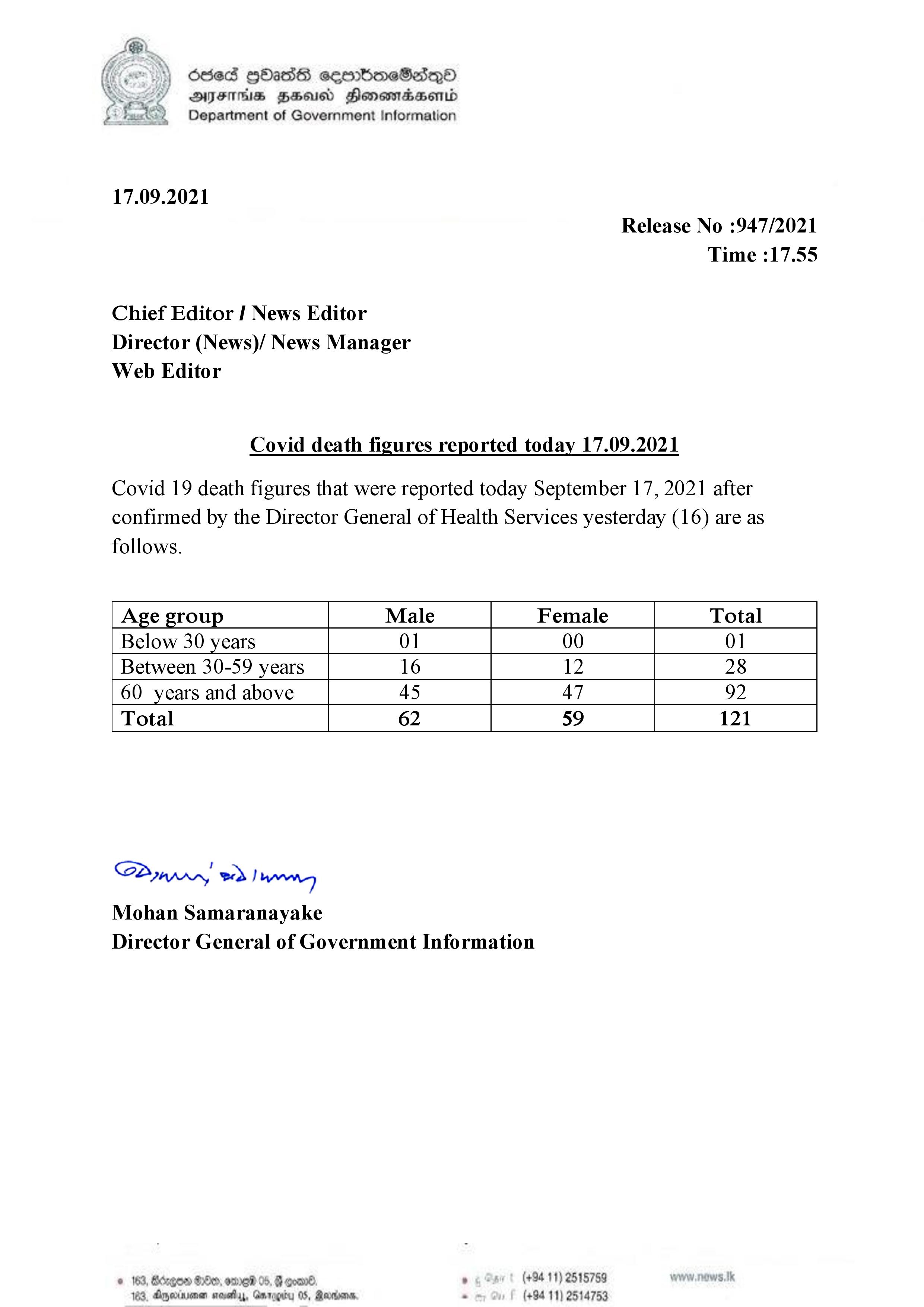
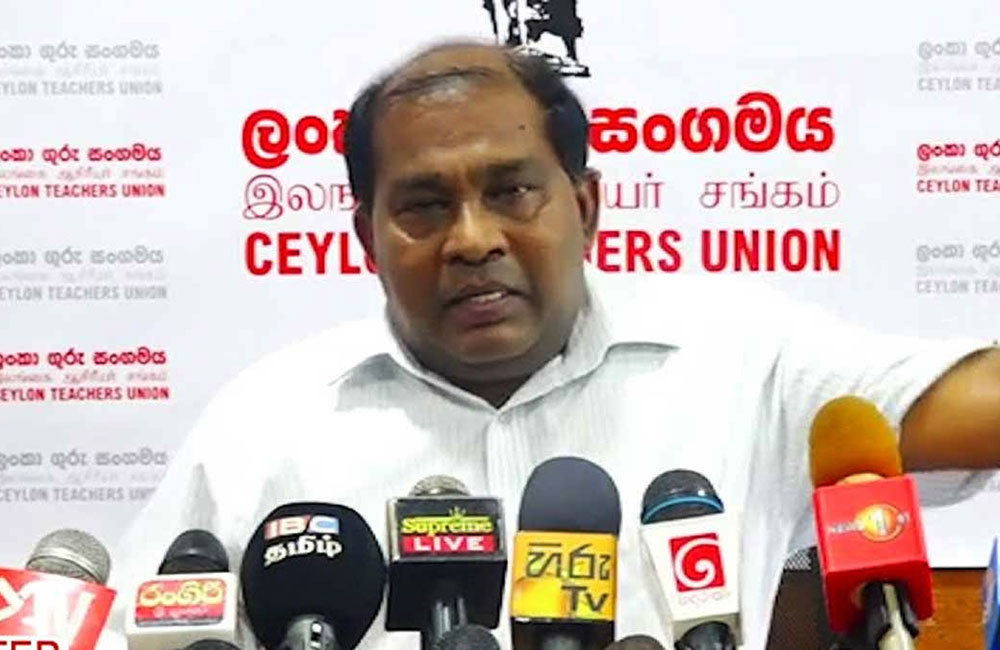
Govt has three days to present a solution: Joseph Starlin
The General Secretary of the Ceylon Teachers Union, Joseph Starlin says that the Government has three days to discuss the issue of salary anomalies of teachers and present a solution.
Speaking to the media today (12), Starlin said that the floor for G.C.E. Advanced level and the Grade 5 Scholarship applications is due to open in three days time, and if the Government does not present a solution to the issue, the teachers will not be applying for the marking process of the relevant examinations.
Adding that the results of examinations have been delayed because of the pandemic, he emphasized that the Government has not implemented a proper mechanism to ensure that children can obtain their education yet.
''The Government has not taken any steps for the betterment of children’s education since March 2020, in that context, why is the Government suddenly attempting to care about education?” He questioned.
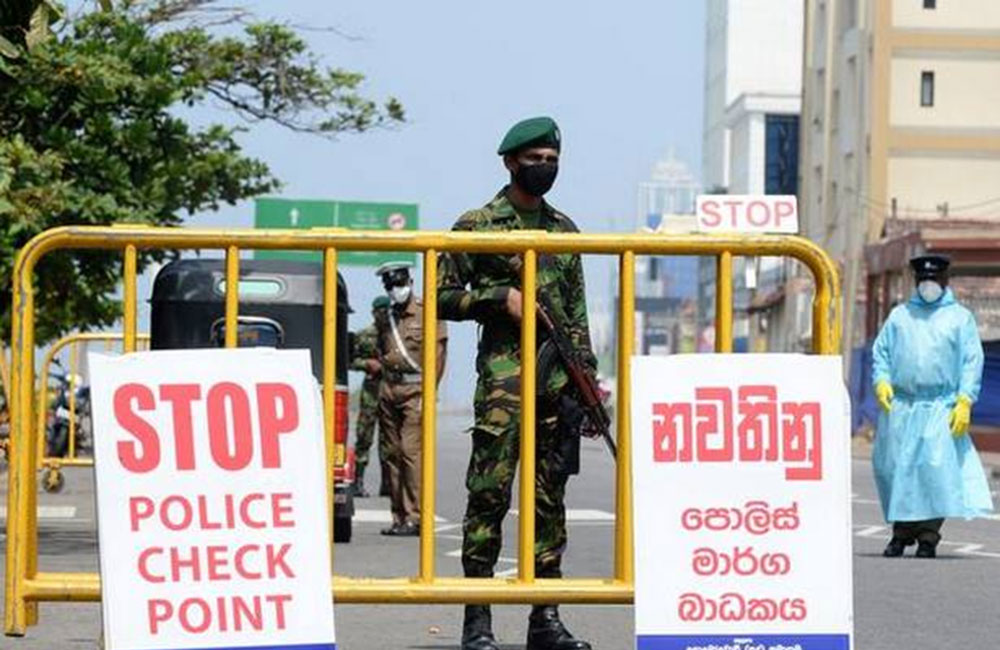
Lockdown further extended till Oct 1
Health Minister Keheliya Rambukwella today said the islandwide lockdown has been further extended till October 1.
Rambukwella said government essential services impacting the economy will however be allowed to function and conditions will be notified soon.
"As per President Gotabaya Rajapaksa, I will be consulting with Basil Rajapaksa to decide which government institutions will be kept open as essential services that contribute to the economy," Minister Rambukwella said.

Covid: 144 more deaths reported. Toll up to 11,296
144 COVID-19 deaths were confirmed for Saturday (11), said the Department of Government Information. The total number of fatalities increased to 11,296.
According to the data released by the Department of Government Information, the latest victims include 77 males and 67 females.
As many as 122 deaths were reported among the elderly people aged above 60 years.
In addition, 21 individuals aged between 30-59 years and one female below 30 years have also succumbed to the virus infection.


Covid: 132 more deaths reported. Toll up to 11,699
A total of 132 more COVID-19 related deaths that occurred yesterday (14) were confirmed by the Director-General of Health Services today pushing the death toll to 11,699.
According to the Government Information Department, 66 females and 66 males are among the deceased.
A total of 101 people who are above 60 years of age are among the deceased while 28 of them are between 30 and 59 years of age.
Three deaths have been reported below 30 years of age.
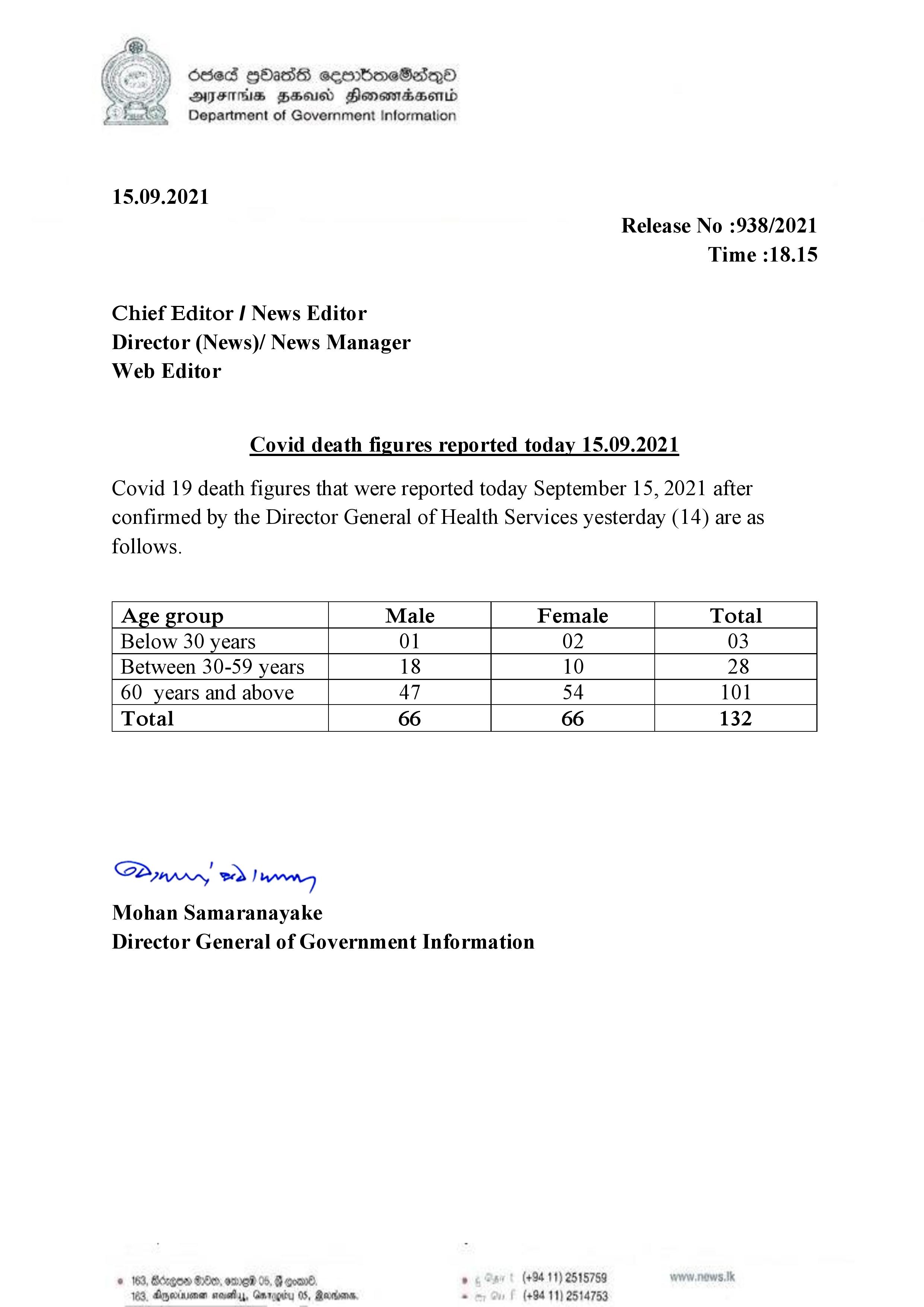

COVID Death Toll in Sri Lanka passes 11,000 mark
COVID death toll in Sri Lanka passed the 11,000 mark with 157 deaths confirmed for Friday (10).
Total Fatalities: 11,152
According to the Government Information Department, 87 females and 70 males are among the deceased.
A total of 130 people who are above 60 years of age are among the deceased while 23 of them are between 30 and 59 years of age.
Four deaths have been reported below 30 years of age.
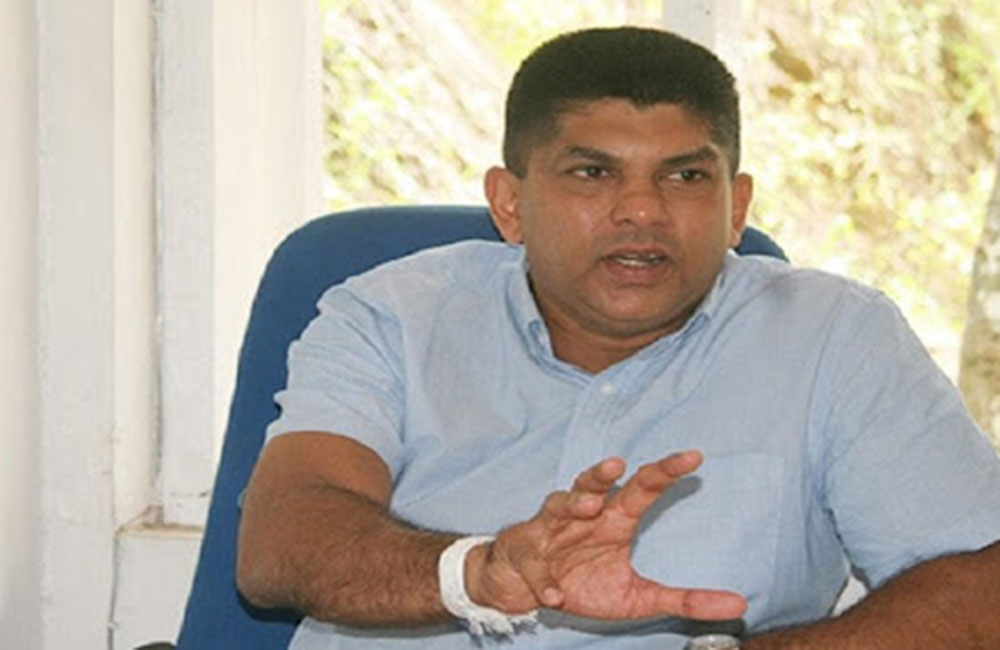
Lohan Ratwatte resigns
State Minister of Prison Reform and Rehabilitation Lohan Ratwatte has informed President Gotabaya Rajapaksa that he will step down immediately from his portfolio.
The President’s Media Division said Lohan Ratwatte had decided to step down after taking responsibility for the incidents that took place at the Welikada and Anuradhapura Prisons.
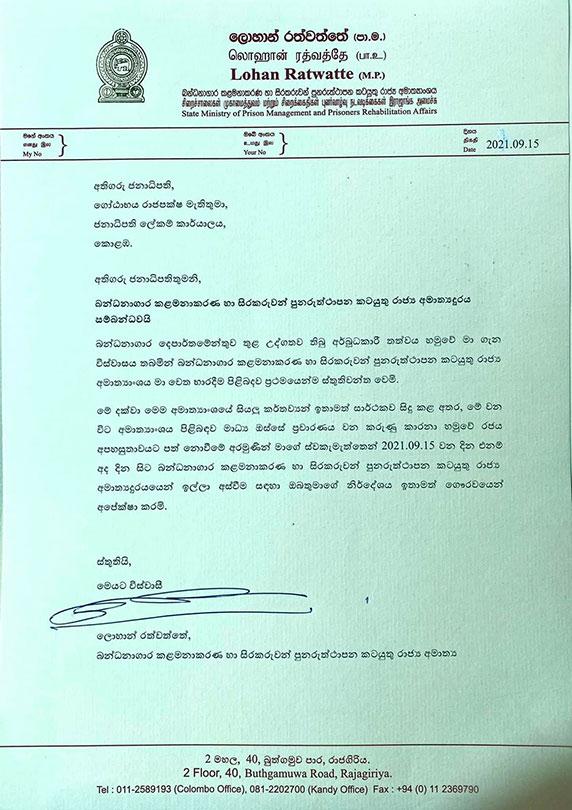
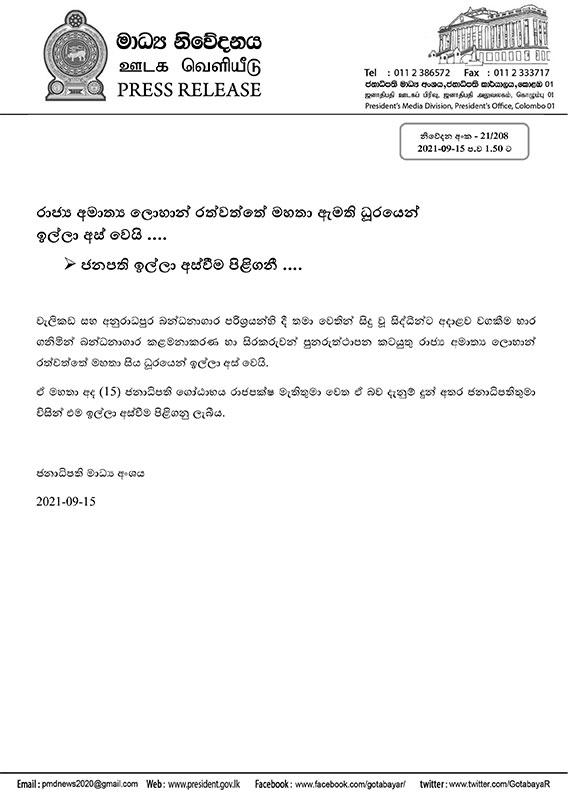
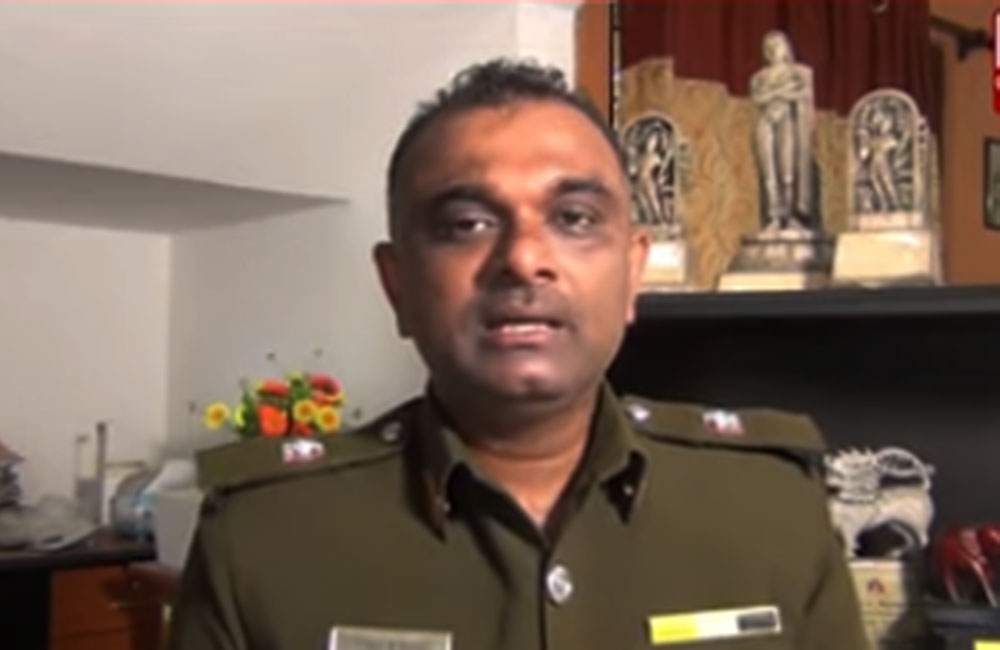
Current lockdown heading into blind alley: PHIs
The present lockdown will be of no use if public movement are properly curtailed, Public Health Inspectors Union (PHIU) claimed.
PHIU Head Upul Rohana said people were behaving as if there is no lockdown or quarantine curfew in the country.
“It's in fact futile to extend the curfew because it is apparent that the ideal results expected of a lockdown cannot be achieved with the prevailing lockdown in the country,” he pointed out.
“We do admit the fact that the economic activities should be maintained; however, what we find so tricky is that every other activities are being carried out under the guise of maintaining the economy," the PHI Head emphasised.
He said if the authorities pay no attention to this, the situation would be more detrimental in the future with more contagious and lethal coronavirus variants.
Meanwhile, Deputy Director General of Health Services Dr. Hemantha Herath said neither the PHIs nor other health officials can curtail the movement of people during the lockdown.
“People themselves will have to be responsible and most importantly, the law enforcement authorities should make sure the quarantine curfew is properly observed by the general public.
dailymirror

COVID fatalities in Sri Lanka increases to 11,567
136 COVID-19 deaths were confirmed for Monday (13), said the Direct0r-General of Health Services. The total number of fatalities in Sri Lanka increased to 11,567.
According to the data released by the Department of Government Information, the latest victims include 76 males and 60 females.
As many as 106 deaths were reported among elderly people who are aged above 60 years.
In addition, 28 individuals aged between 30-59 years and 02 below 30 years have also succumbed to the virus infection.

131 more die of COVID-19: Death toll surges to 10,995
131 COVID-19 deaths confirmed for Thursday (9). The total number of fatalities increased to 10,995.
According to the Government Information Department, 58 females and 73 males are among the deceased.
A total of 110 people who are above 60 years of age are among the deceased while 20 of them are between 30 and 59 years of age.
One death has been reported below 30 years of age.
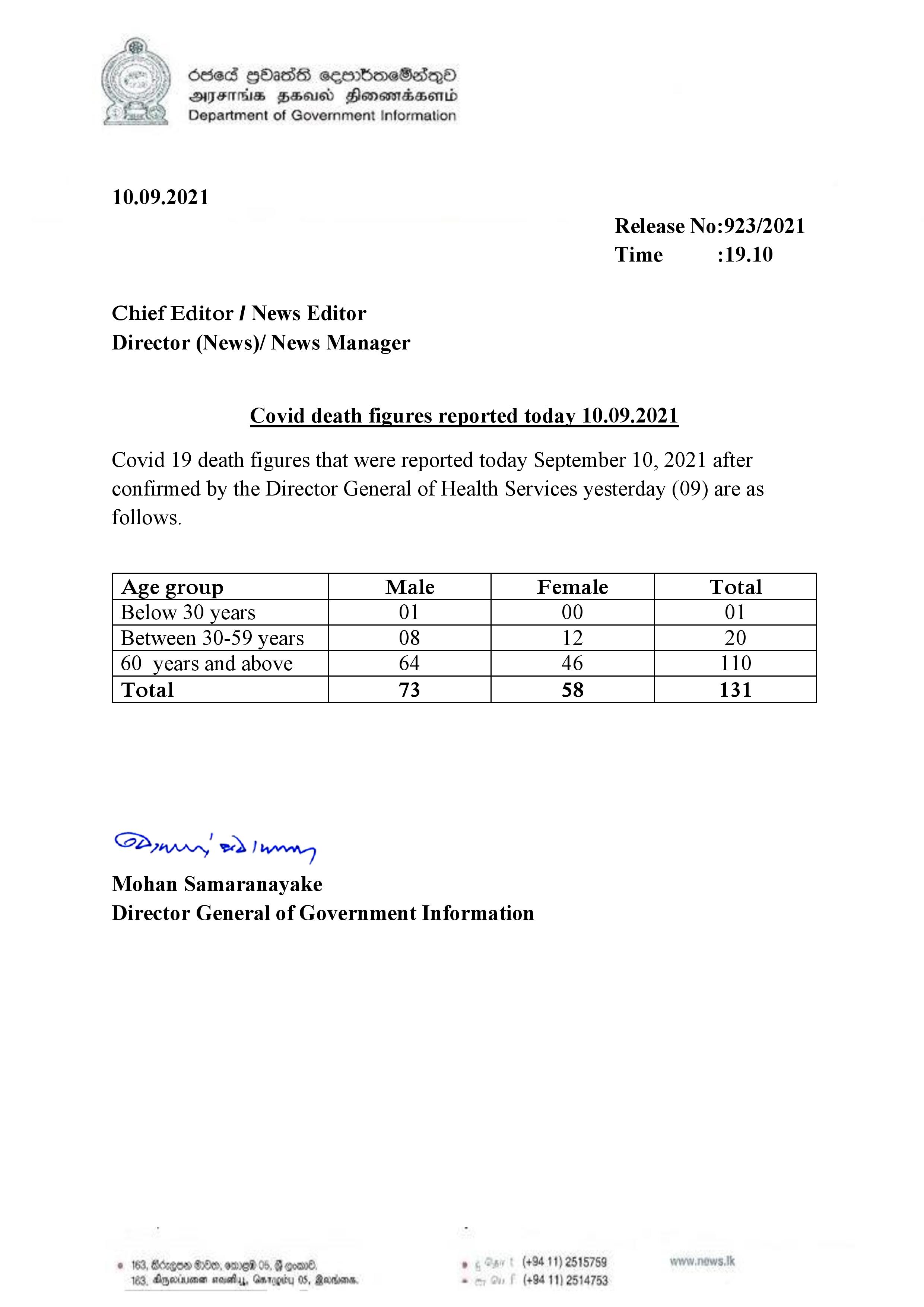
Page 368 of 684